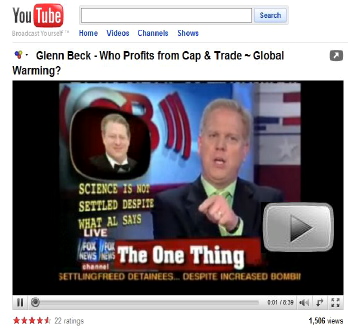
News
Behind the Headlines
Two-Cents Worth
Video of the Week
News Blurbs
Articles
Testimony
Bible Questions
Internet Articles (2015)
Internet Articles (2014)
Internet
Articles (2013)
Internet Articles (2012)
Internet Articles (2011)
Internet Articles (2010)
Internet Articles
(2009)
Internet Articles (2008)
Internet Articles (2007)
Internet Articles (2006)
Internet Articles (2005)
Internet Articles (2004)
Internet Articles (2003)
Internet Articles (2002)
Internet Articles (2001)


Two
major oil companies and Caterpillar pull
out of Climate Change Carbon Tax
Alliance
The Wall
Street Journal reported that two of the oil giant Seven Sisters, BP-America
and ConocoPhillips announced on Tuesday, Feb. 19 that they would
not renew their membership in the US Climate Partnership. Joining
them in their decision was Caterpillar, Inc. At the same
time, The Hindu, India's largest newspaper, reported that Barack
Obama suffered a major setback to his green agenda when the three
corporations dropped out of the coalition of business and environmental
groups that had been lobbying Congress for passage of carbon legislation.
ConocoPhillips CEO Jim Mulva agreed that the House and Senate bills "...disadvantaged the transportation sector and its consumers and unfairly penalized domestic refineries that would have to face international competition on an unbalanced playing field."
Rex Tillerson, CEO of Exxon—who plays at a little bit bigger table than his smaller oil siblings (Exxon is now the flagship of the Standard Oil empire)—is not quite ready to dump USCAP and join Conoco-Phillips or BP-America. But that's not to say that Tillerson is not concerned where the social progressive's legislation will lead. "My greatest concern," he said in January, "is that policy makers will attempt to mandate or ordain solutions that are doomed to fail..." (such as Cap & Trade, the legislation that is sitting in Joint Conference waiting for Nancy Pelosi's stealth move to force either the House or the Senate to adopt the other house's measure without change). "A carbon tax would be a more direct and transparent approach," Tillerson concluded. Tillerson likes a plain old everyday tax, because its the easiest thing to foist off on to the consumers. The oil company tacks the tax on to the cost of the product, and it becomes the part of the cost charged to distributors, who in turn pass it on to the consumers as they pump the gasoline into their gas tanks. The carbon tax never touches the bottom line of the Seven Sisters. It simply becomes a consumer tax that's collected by the oil companies and paid to Uncle Sam. You just pay more for each tank of gas. Ultimately, every tax or assessment levied against big business is always paid for by the little guy
In a written statement issued
on Tuesday, Caterpillar said it had decided to join forces with
FutureGenAlliance, an organization working on the development of
building coal-fired near-zero emission power plants. They are currently
building their first near-zero emission power plant in eastern Illinois.
Red Cavaney, senior Vice President for Government Affairs for ConocoPhillips
said that ConocoPhillips did not want to "rush" legislation
through Congress without closely examining the details of what what being
passed.  USCAP,
Cavaney noted, was focused only on getting a climate bill of any
type passed without close scrutiny by Congress what was in it. Conoco,
Cavaney said, is increasingly concerned with what the legislation
will deal with. "USCAP," he said, "is starting
to do more and more tto get a bill out without trying to work as much
on the substance of it."
USCAP,
Cavaney noted, was focused only on getting a climate bill of any
type passed without close scrutiny by Congress what was in it. Conoco,
Cavaney said, is increasingly concerned with what the legislation
will deal with. "USCAP," he said, "is starting
to do more and more tto get a bill out without trying to work as much
on the substance of it."
Spokesmen for both ConocoPhillips and BP-America said their companies remained committed to some type of climate change legislation, but they believe they can accomplish more working outside USCAP's umbrella. "Our position on this issue," BP spokesman Ronnie Chappell said, "is unchanged. What this does is underscore our desire to continue to participate in this important discussion—but to do it as BP."
A spokesman for USCAP, Tad Segal said the group would continue to campaign for legislation to cap US carbon emissions and greenhouse gases. When asked by the Wall Street Journal why the two oil giants dropped their membership in USCAP, Segal said questions about their reasons for dropping out would have to be directed at BP-America, ConocoPhillips and Caterpillar and not USCAP. "We think there's momentum to get it done...Obama's State of the Union address made it clear the administration is behind us."
When asked if he thought the current legislation would become law, Chappell told Fox News "I would never speculate as to what would happen with a pending piece of legislation." But, he added, the "bills on the table" no longer conform to what USCAP claimed it initially envisioned as a climate change bill. He said the legislation—including one bill that passed the House but stalled in the Senate—does not provide adequate protection to US refineries. If any of the bills pass, Chappell said, they will result in more, not less, oil imports. In addition, the bills now pending in Congress will result in the closures of most, or perhaps, even all US refineries—and the loss of even more US jobs. The United States will become so oil dependent on countries like Venezuela, China and the Soviet Union that when our enemies decide to attack us, they will simply shut off the fuel faucet and our tanks and military transports won't be able to meet our enemies at their beachheads, nor for that matter, will our navies be able to sail into harms' way to prevent the navies of our enemies from getting anywhere near our coastlines. Nor will our Strategic Air Command carrying nuclear payloads reach either Moscow or Beijing, nor will Tactical Air Command strike forces be able to drop our enemies, who will be carrying nuclear weapons, into the oceans before their reach the United States. Did you ever wonder how the French felt in the opening days of World War II? If this Cap & trade legislation passes, we are going to find out. If fact, we are going to find out on the Polish horse mounted cavalry felt like when they attacked the German 4th Panzer Division on Sept. 1, 1939. (While military myth claims that the Poles attacked over 2,800 tanks and armored vehicles with 11 Calvary Brigades and 39 infantry divisions, the Poles actually also had 660 tanks and 84 armored cars.) Any nation which allows its avowed enemies to control not only the production of all of its durable and consumer goods, but also the availability of oil, the refining of gasoline, heating oil and jet fuel, as well as the processing of natural liquid gas, has fools in leadership roles and idiots casting the votes on election day.
Separating the bull from the crap, all three companies (with more likely to follow) are being swayed by the fact that, once again the social progressives are deliberately crippling US industry and forcing the United States to buy goods and services from their friends and our enemies. It is not enough that we fire every social progressive in the House and Senate, and in the Executive Branch of government as well. We need to charge them with high crimes against the United States and give them room and board in a federal institution for the rest of their lives. I think we probably have enough internment camps to house them until we can arrange their deportation to social progressive countries more to their liking somewhere else in the world like the Soviet Union, the people's Republic of China, North Korea, Cuba or Obama's favorite, Indonesia. Our jobs, however, need to stay here. Slave labor consumer goods being churned out what by are referred to as American companies in China, Indonesia, India, Pakistan, Mexico because they wear US trademarked brand names, need to stay in the countries which produce them. If the American people want jobs, they need to stop buying the crap excreted from the bowel fluxes of the third world. The American consumer needs to stop and think for a minute. Which do they want? Doing without the latest techno-gizmo sporting an American brand name but made in a sweat shop in Indonesia or China—or doing without a job, an income and a place to live? Your choice. Will it be curtain one or curtain two? Oops—wait a minute. Too late. You already picked curtain two. But, for a bonus, the princes of industry and the barons of business are throwing in curtain three. You didn't know about curtain three? Behind curtain three are 254 million illegal aliens who are lined up to make sure that any jobs left in the United States go to them and not to the US citizens whom the social progressives believe have had it too good since 1787.
The American people now have 9 months to fix what the social progressives needed almost a hundred years to screw up. If the voters do not clean house—and I really mean clean house by getting rid of every social progressive and left-leaning politician not only in of the federal system but the States and county systems—this nation will no longer exist as a sovereign nation within three more years.

Copyright © 2009 Jon Christian Ryter.
All rights reserved.


